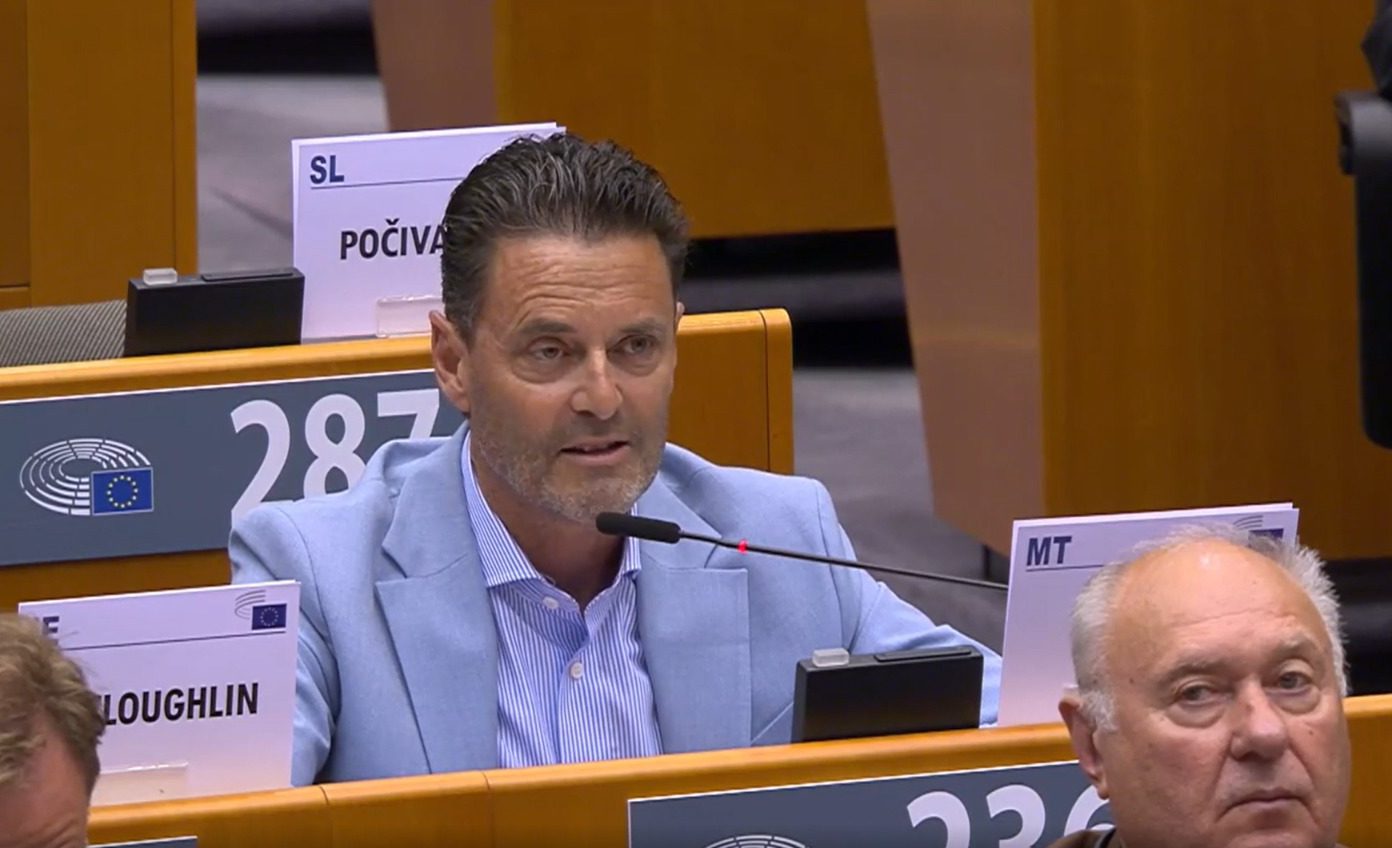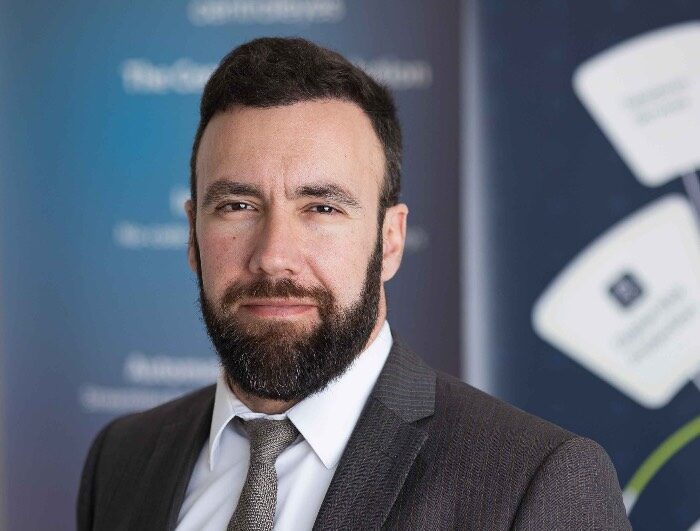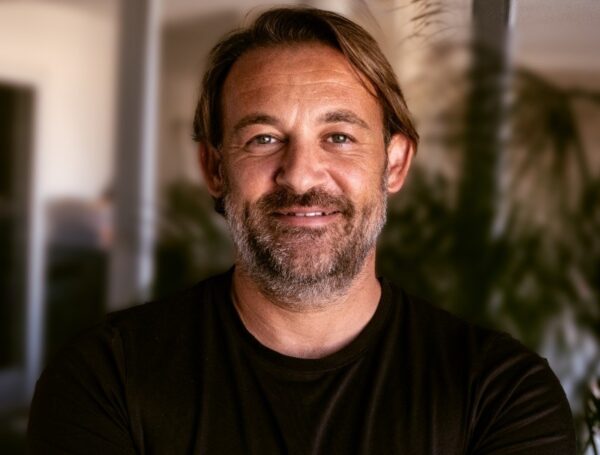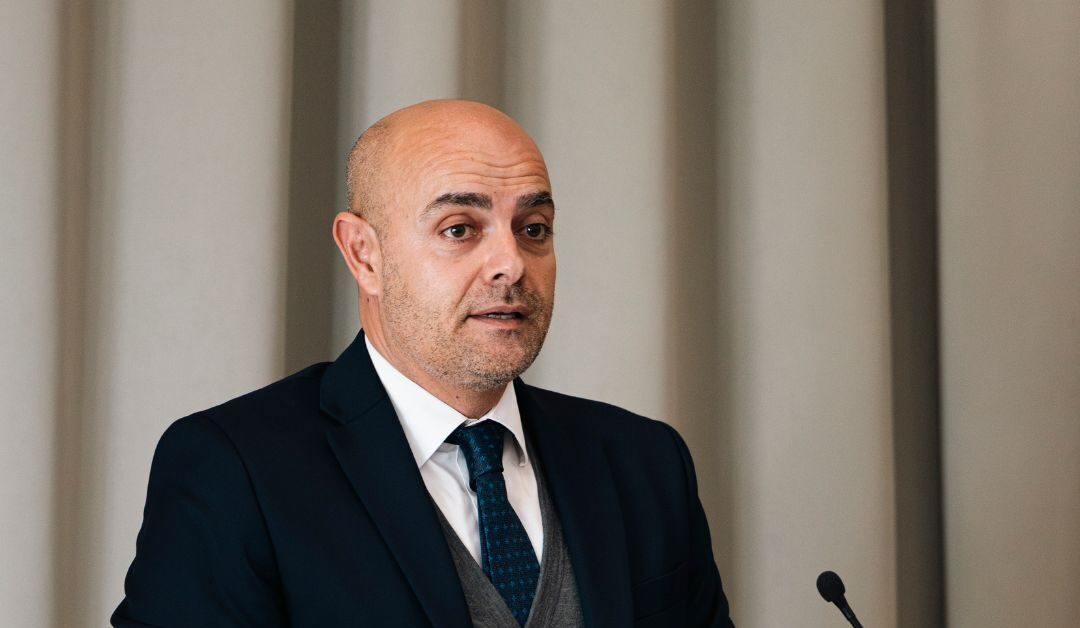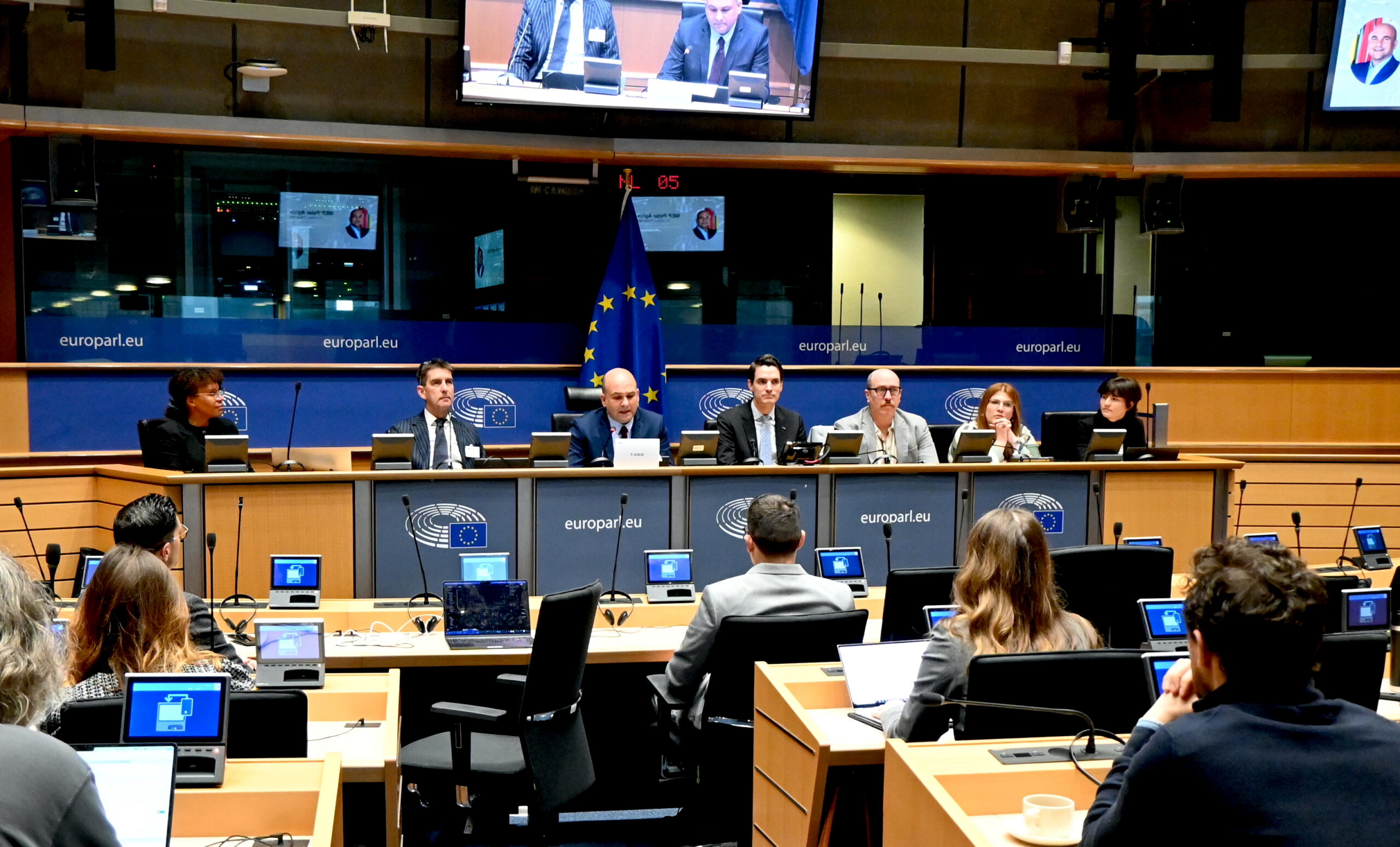Stefano Mallia, President of the Employers’ Group within the European Economic and Social Committee (EESC), has called for greater focus on tackling the European Union’s (EU) declining competitiveness.
He was speaking during this week’s EESC Plenary session, which focused on the state of democracy in Europe, the priorities of the new Hungarian presidency of the Council of the EU, traineeships, and the 2040 climate target, among other topics.
During the session, Mr Mallia addressed János Bóka, Minister of EU Affairs of Hungary, bringing to attention a number of key challenges that the EU, particularly its business sector, is facing.
In his intervention, Mr Mallia referred to Hungary’s presidency slogan “Make Europe Great Again,” with the experienced consultant stating that it is not a case of making Europe great again, but about creating the conditions and through strong and clear leadership “make sure the greatness and value of the EU is not only protected, but we create an environment for it to grow.”
One of the items that Minister Bóka placed on the agenda for Hungary’s presidency is the need to focus on competitiveness.
“You very rightly so put competitiveness at the very centre of your agenda, and as you can image, as President of the Employers’ Group, this is something which is very welcome,” Mr Mallia said, noting that this was something that was also previously discussed.
However, he appealed to the EU Council to take the issue of declining competitiveness within the EU seriously.
This is an issue that has been emphasised by many EU leaders over recent months, as the EU loses ground on the US and China, which are leading the way in terms of innovation and industry.
The EU and the US had roughly the same Gross Domestic Product (GDP) in 2008 at around $14 trillion (€12.9 trillion), yet in the space of 15 years the US has nearly doubled this to $27 trillion (€24.8 trillion). On the other hand, the EU’s GDP has barely increased, going up to just over $16 trillion (€14.7 trillion).
Business leaders have stated that the EU needs to tackle this gap with deep reforms, having a vision to rebuild a more competitive Europe.
Mr Mallia stated that while this call for focus on competitiveness may be seen as the “usual employer agenda,” his concern is that the EU needs to have a healthy business community.
“I still have to find a healthy democracy that does not have a healthy business community,” he added.
He remarked that when it comes to the need to address declining competitiveness, he is also specifically very worried about issues related to regulation.
“Even if the European Commission had to not come with a new work programme in the coming months, we will still be facing a whole new raft of legislation. We are really struggling Minister Bóka,” Mr Mallia appealed.
Earlier this year, Börje Ekholm, CEO of Swedish telecommunications firm Ericsson, argued that overregulation is “driving Europe to irrelevance,” and could leave the bloc with “no industry left.” This is also backed by figures, as industrial production in the EU has dropped by 5.7 per cent from 2023 to 2024, the most since the COVID-19 pandemic, while US industrial production decreased by less than 0.5 per cent in the same period.
In a plea of assistance for the business community, the Employers’ Group President noted that the issue of better designed regulation has to be tackled.
“We need to create an environment which allows us not only to attract foreign direct investment (FDI), which is essential, but to maintain it. I have seen too many youths leaving Europe and too many businesses closing [in Europe] and opening in the US or China. I think we need to tackle these issues in the same way we need to tackle issues concerning the single market,” Mr Mallia stated.
Concluding, he also called on the EU to take better care of the ongoing Ukraine-Russia conflict, pointing towards a recent attack on a hospital in Ukraine.
“I think this horrendous act needs to be clearly kept in mind and we need to stop putting obstacles to defending Ukraine. Ukraine needs to be defended, because if we are doing so, we are also defending ourselves,” Mr Mallia stressed.
Mr Mallia is a seasoned consultant and business advisor, having worked at EMCS Ltd as Partner for the past seven years, focusing on EU and business advisory.
Featured Image:
EESC Employers' Group President Stefano Mallia during the Plenary session / EESC Employers' Group
What survives February matters more than what starts in January
How many goals or resolutions did you set in January?
‘A necessary growing pain’: MIA CEO Alan Borg on airport expansion
He said the investment is necessary if MIA is to remain among Europe’s leading airports
BNF appoints new Chief Financial Officer and Chief Banking Officer
Nadia Miceli promoted to Chief Financial Officer, while Stewart Carvil appointed Chief Banking Officer
‘Cyber resilience isn’t about ticking boxes’: Malta and EU cybersecurity leaders convene in Brussels
Daniel Thompson-Yvetot, CEO of CrabNebula and co-founder of Comply.Land, warned that businesses risk being overwhelmed.


